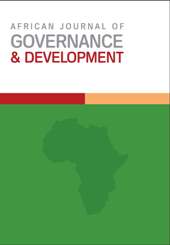Relevance of Democracy and Economic Freedom to Employment and Entrepreneurship in Post-apartheid South Africa
Main Article Content
Abstract
Development success hinges on ever-growing freedom and individual values in a democracy rather than in a state-inspired framework with collectivist ideas (Easterly, 2021). Against the background of government failures, with low employment growth, this paper uses a VAR model and Granger causality tests to examine the relationship between economic freedom, democracy, real GDP, unemployment and entrepreneurship (TEA) in post-apartheid South Africa, using 1994-2023 data.
The findings indicate a short run relationship exists between the variables under study. A point increase in the previous year's democracy score results in a notable 10% gain in TEA, confirming that democracy has a highly beneficial impact on entrepreneurship. Unemployment, third lag, has a positively significant impact on TEA, thus supporting the push-hypothesis. Declines in TEA negatively impact on real GDP, and first lag entrepreneurship positively impacts freedom. The Granger tests show a one-direction causality running from democracy to entrepreneurship, from democracy to freedom, and from real GDP to entrepreneurship. A bi-direction causality is found to exist between TEA and unemployment. Individually, democracy, unemployment and real GDP Granger cause TEA. As a group, that includes freedom, the four factors jointly cause TEA. Hence, a strengthening of democracy, entrepreneurship, real GDP and freedom in South Africa can assist in reducing the country’s unemployment.
Article Details

This work is licensed under a Creative Commons Attribution-NonCommercial-NoDerivatives 4.0 International License.
